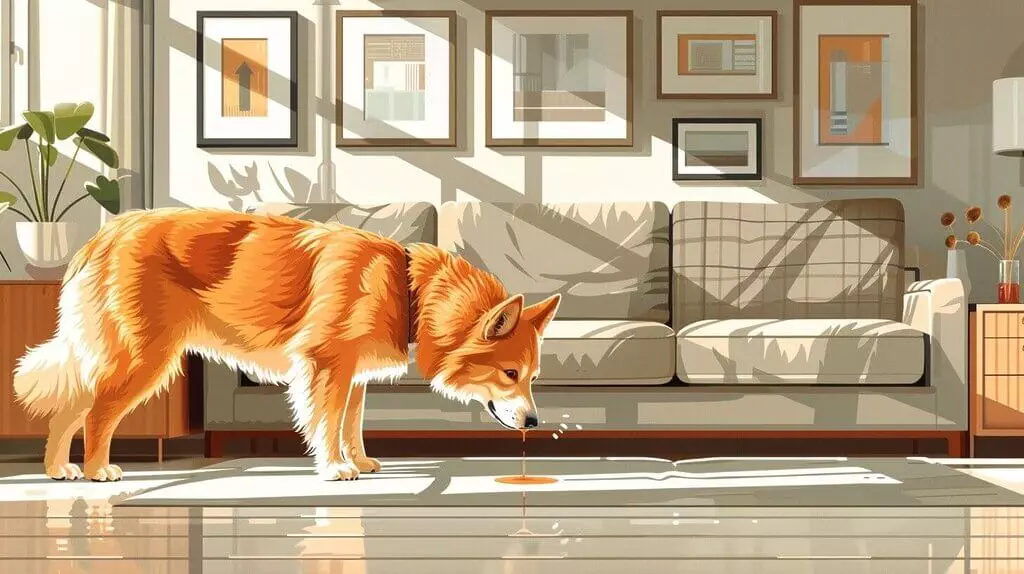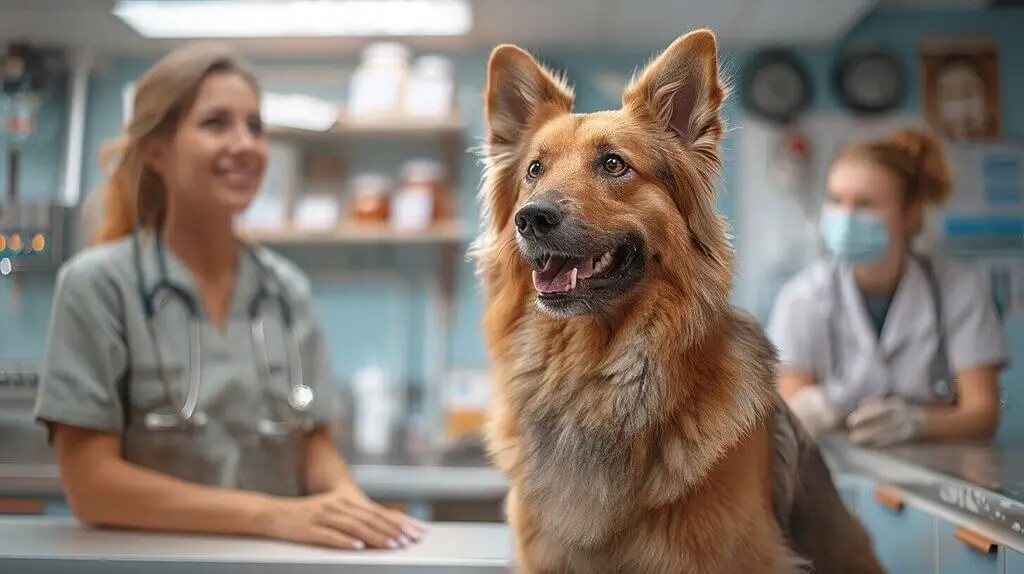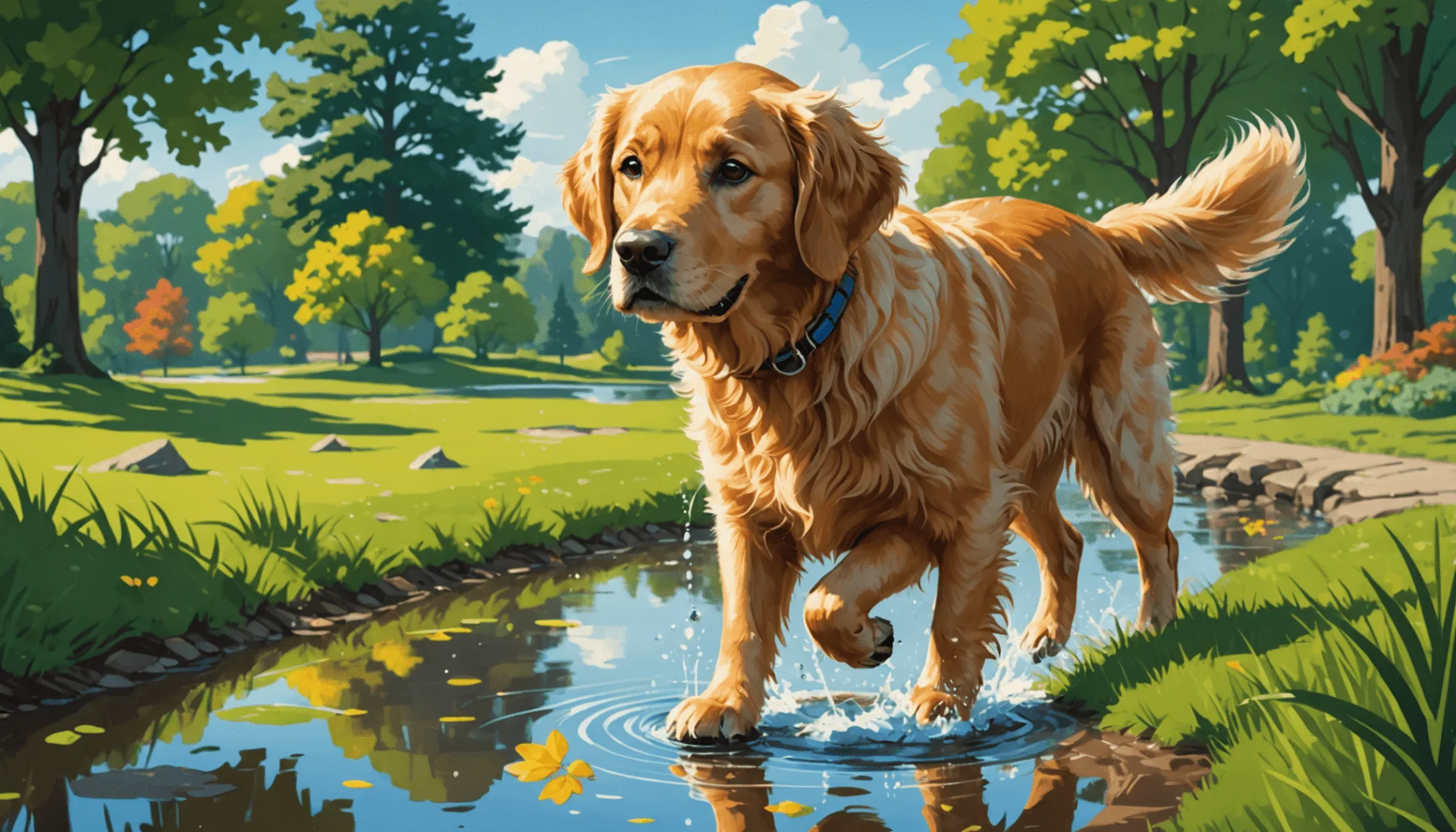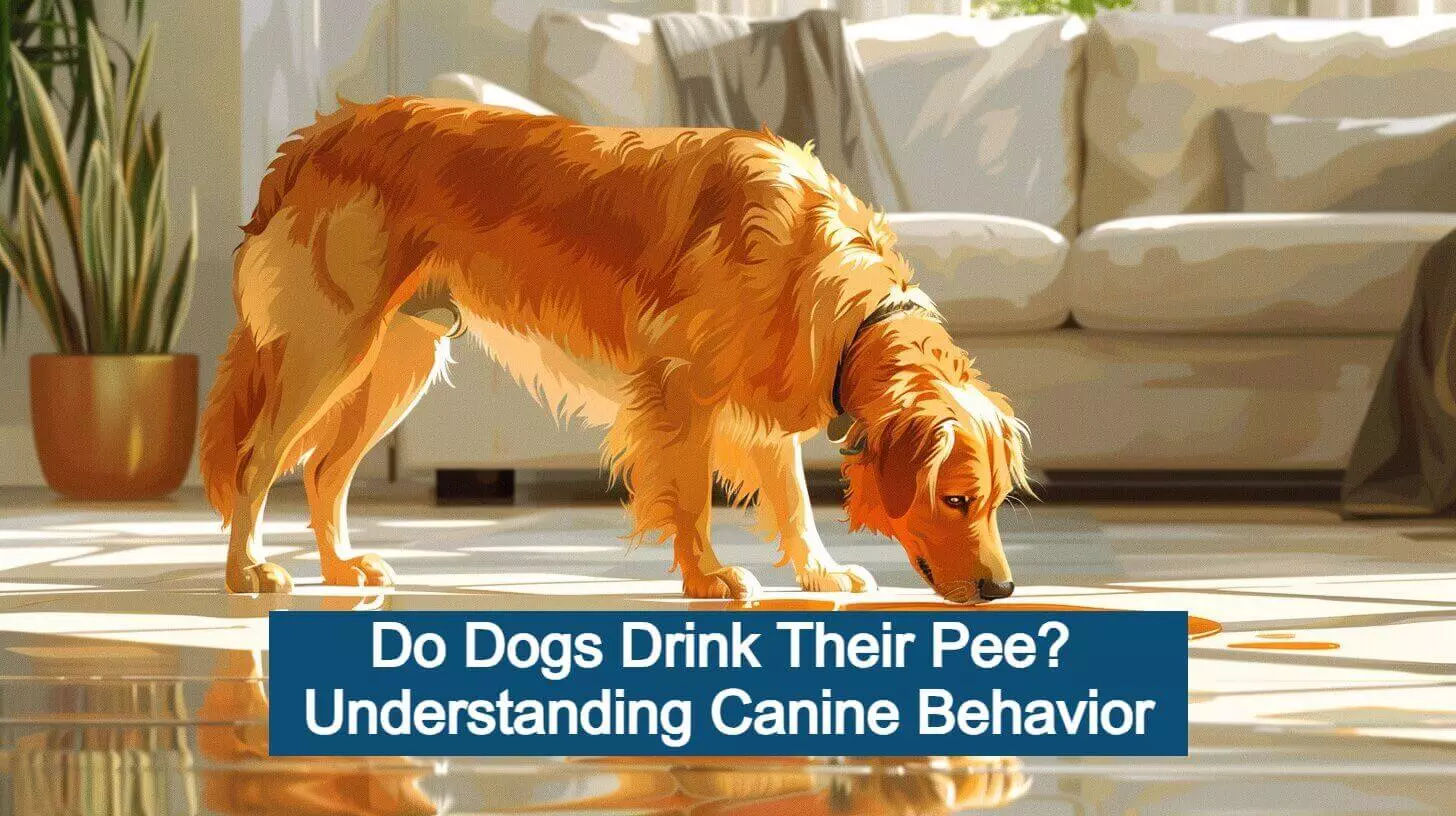Have you ever caught your dog doing something surprising, like drinking their own pee? It might sound wild, but many pet owners wonder, do dogs drink their pee? This unusual behavior can leave you puzzled, and understanding it is super important for keeping your furry friend healthy and happy.
Ignoring this behavior could lead to potential health issues or signs of anxiety in your pup. In this article, we’ll explore the reasons behind this baffling habit, discuss any health risks it might pose, and share expert tips on how to manage it. We’ll also highlight the importance of regular vet visits to ensure your dog stays in tip-top shape.
So, let’s dive in and uncover the answers that every dog owner should know!
Understanding Why Dogs Might Drink Their Own Pee

Common Reasons Dogs Engage in This Behavior
Dogs may drink their own urine for several reasons. The most common reason is thirst. If a dog is very thirsty and cannot find fresh water, it might drink its own urine. This can happen if the dog’s water bowl is empty or if it has been outside for 2 to 6 hours without access to water. Puppies, in particular, may engage in this behavior while learning about bathroom habits.
Another reason could be heat. Female dogs in heat may feel a stronger urge to urinate, leading them to drink their own urine as they seek relief. Understanding these natural instincts can help owners manage their dog’s behavior effectively.
Behavioral Issues That May Lead to Drinking Urine
In some cases, dogs drink urine due to behavioral issues. Anxiety is a common factor. Dogs that feel stressed or bored may drink their urine as a coping mechanism. For example, a dog left alone for long periods might feel anxious and resort to this behavior. Boredom can also lead to unusual habits. Dogs that do not have enough stimuli or playtime may find drinking urine an easy way to occupy themselves.
- Signs of behavioral issues include:
- Excessive barking or whining.
- Destructive behavior when left alone.
Additionally, some dogs may learn this behavior by observing other dogs. This can create a cycle that is challenging for owners to break. Recognizing these underlying behavioral issues is key to addressing the problem.
The Health Implications of Drinking Urine

Drinking urine can indicate several health issues in dogs. Common health problems associated with this behavior include urinary tract infections (UTIs) and diabetes.
Potential Underlying Medical Issues: UTIs and Beyond
As mentioned before, when dogs drink their own urine, it may signal a urinary tract infection (UTI). UTIs can make dogs feel the need to urinate more often. As a result, they may drink more water and, in some cases, their own urine.
Drinking urine can also be a sign of diabetes. This condition causes increased thirst and frequent urination. If a dog excessively drinks its urine, it may indicate diabetes or another medical issue needing attention. If a dog is taking medications that affect bladder function, it might drink more water and consequently its own urine. [Cuteness]
| Health Concern | Effects on Urination | Possible Actions |
|---|---|---|
| Urinary Tract Infection (UTI) | Increased thirst and urination | Consult a veterinarian |
| Diabetes | Excessive thirst and frequent urination | Regular monitoring and blood tests |
| Medication Effects | Changes in bladder function and urine | Discuss with your vet |
How Conditions Like Diabetes Affect Drinking Habits
Diabetes can lead to increased thirst in dogs. With this condition, dogs may drink more water than usual, leading to more frequent urination. Consequently, they might drink their own urine.
Owners should observe their dog for signs of diabetes. These signs include excessive drinking, increased urination, weight loss, and changes in appetite. If any of these symptoms are present, it is vital to consult a veterinarian. Early diagnosis and treatment can significantly improve a dog’s quality of life. [Quora]
Signs of Excessive Drinking: When to See a Veterinarian
Recognizing when a dog drinks excessively is crucial. Owners should watch for signs that indicate potential health problems. If a dog drinks its urine regularly or appears lethargic, it may be time to seek veterinary care.
Other signs to watch for include:
- Weight loss
- Changes in appetite
- Lethargy
- Frequent urination
These symptoms could indicate serious health issues requiring immediate attention. Consulting a veterinarian can help identify the problem and provide appropriate treatment. [Dogster]
How to Manage and Redirect This Behavior

Tips for Training Your Dog to Stop Drinking Urine
Training your dog to stop drinking urine often involves positive reinforcement. This means rewarding good behavior instead of punishing bad habits. For example, when your dog does not drink its urine, giving it a treat can encourage this behavior. Additionally, you can distract your dog with a toy or a game when it shows signs of wanting to drink urine. This helps your dog associate playtime with not engaging in urinophagy. Consistency is key; repeating this every time will help your dog learn.
Veterinarians also suggest monitoring your dog’s behavior. If your dog seems anxious or stressed, addressing these feelings can be beneficial. Creating a calm environment with a routine can lessen anxiety. This approach can help decrease the urge to drink urine, as stress is often a factor.
Providing Alternatives and Enriching Your Dog’s Environment
Providing alternatives is another way to manage this behavior. Dogs need mental and physical stimulation to stay happy. This can be done through walks, playtime, and interactive toys. A tired dog is less likely to engage in unwanted behaviors, like drinking urine.
You can also create a distraction by introducing new activities. For example, puzzle toys can keep your dog focused and busy. These toys require your dog to solve a problem to get a treat, which can be a great way to keep them entertained.
Regular exercise is equally important. Taking your dog out for walks not only provides hydration but also reduces boredom. A well-exercised dog is less likely to seek out alternative behaviors, including urinophagy.
The Importance of Regular Vet Check-Ups
Regular veterinary check-ups are essential for maintaining your dog’s health. These visits help identify any medical issues that might cause increased thirst or urination.
During these visits, a veterinarian can assess your dog’s hydration levels and overall health. They can also provide advice tailored to your dog’s specific needs. For instance, if your dog drinks urine due to a medical condition, veterinarians can suggest appropriate treatments or dietary modifications.
Staying proactive with vet visits can help you manage your dog’s health effectively, which is crucial for addressing any underlying causes of urinophagy.
| Strategy | Description |
|---|---|
| Positive Reinforcement | Reward your dog for not drinking urine with treats. |
| Environmental Enrichment | Provide toys and activities to keep your dog engaged. |
| Regular Vet Check-Ups | Ensure your dog is healthy and monitor for medical issues. |
By implementing these strategies, you can help your dog develop healthier habits and reduce the likelihood of drinking urine. Taking a proactive approach is key to ensuring your dog’s well-being.
Expert Insights on Canine Urine Drinking

What Veterinarians Recommend for Concerned Pet Owners
Veterinarians suggest monitoring your dog if it drinks its own urine. This behavior can sometimes indicate underlying health issues. For example, dogs may drink their urine if they are bored, stressed, or have health problems like urinary tract infections (UTIs). If this behavior happens often, it’s important to seek veterinary advice.
Key Points to Observe:
- Monitor changes in drinking and urination habits.
- Look for signs of stress or anxiety, like excessive barking or hiding.
If your dog shows excessive thirst or increased urination, visiting the vet is crucial. Conditions like UTIs or diabetes can lead to these symptoms. A vet can perform tests and suggest treatments based on your dog’s needs.
Signs to Watch For:
- Increased drinking in short periods (common every 2-6 hours).
- Frequent urination, which may indicate a health issue.
Veterinarians also recommend using positive reinforcement to redirect unwanted behaviors. Offering praise or treats when your dog engages in acceptable activities can improve behavior over time.
Positive Reinforcement Tips:
- Use treats when your dog avoids drinking urine.
- Praise your dog for engaging in play or training.
Consulting with a veterinarian helps manage your dog’s behavior effectively. Regular check-ups allow for early detection of any health issues. Being proactive can lead to better overall care for your dog.
Understanding the Bond Between Owners and Dogs
The connection between owners and dogs is important in managing behavior. A strong relationship often leads to better behavior, including less urine drinking. When you understand your dog’s needs, you can help prevent unwanted habits.
Ways to Strengthen Your Bond:
- Engage in regular physical activities together.
- Spend quality time playing and training your dog.
Building trust is essential. Dogs that trust their owners are less likely to act out due to anxiety or stress. Consistent care and positive interactions foster this trust.
Recognizing canine body language can also enhance your bond. If your dog appears anxious, addressing its feelings quickly can help reduce unwanted behaviors like drinking urine.
By fostering a supportive environment, you can minimize behavioral issues and ensure your pet feels secure and understood. This understanding can greatly reduce the likelihood of problematic habits.
Practical Advice for Owners:
- Observe and respond to your dog’s body language.
- Provide a loving and secure environment to reduce anxiety.
Following these insights helps you better understand your dog and manage concerning behaviors effectively. By paying close attention to their body language and unique communication cues, you’ll foster a stronger bond built on trust and understanding. Addressing their needs consistently can also play a key role in correcting undesirable actions in a positive manner. For instance, if you’re wondering, “are bulldogs intelligent pets,” understanding their specific traits and problem-solving abilities can guide you in tailoring training techniques that suit their temperament.
Encouraging Healthy Behavior in Dogs

Recap of Key Points Discussed
Dogs may drink their urine for various reasons. Curiosity often drives this behavior, especially in a 2-month-old puppy exploring their world. Stress and anxiety can also lead dogs to drink urine, especially if they feel punished or anxious in their environment. Additionally, health issues like urinary tract infections (UTIs) and diabetes can cause increased thirst, prompting this behavior.
To better manage this, consider the following strategies:
- Training Techniques: Redirect your dog’s attention, provide ample fresh water, and use positive reinforcement when they avoid drinking urine.
- Creating a Stimulating Environment: Offer toys, regular exercise, and mental challenges to reduce boredom and anxiety.
Table: Common Reasons and Management Strategies
| Reason for Urine Drinking | Management Strategy |
|---|---|
| Curiosity | Provide engaging toys and activities |
| Stress or Anxiety | Create a calm environment with routines |
| Health Issues (e.g., UTIs, Diabetes) | Regular vet check-ups and treatment |
Resources for New Dog Owners to Consider
New dog owners have several key resources to help them understand their pets better. Here are some helpful options:
- Books: Consider reading dog training books that cover behavior and health issues. Titles like “The Art of Raising a Puppy” by the Monks of New Skete can offer valuable insights.
- Online Courses: Websites like Udemy and Coursera offer courses on dog training and care, covering everything from basic obedience to understanding dog psychology.
- Veterinary Guidance: Regular vet visits are critical for monitoring your dog’s health. Vet clinics can provide brochures on dog health, behavior, and recommended resources.
- Support Groups: Joining online forums or local pet groups can provide support and shared experiences from fellow dog owners. Websites like the American Kennel Club (AKC) have helpful resources and forums.
Conclusion
In this article, we explored some baffling dog behaviors, including why dogs might drink their own urine. We learned that this behavior can be caused by boredom, anxiety, or even health issues like urinary tract infections. Understanding these reasons can help pet owners make better choices for their furry friends.
It’s important to monitor your dog’s habits and consult a veterinarian if you notice excessive drinking or signs of illness. By creating a fun and engaging environment, you can help redirect this behavior and strengthen the bond with your dog.
If you’re a new dog owner, keep learning about canine care! There’s always more to discover about our lovable companions and their unique quirks.
FAQs
1. Why Do Dogs Drink Their Own Urine?
Dogs may drink urine due to dehydration, boredom, anxiety, or underlying health issues like urinary tract infections or diabetes. This behavior can signal discomfort or other medical concerns. To address the issue, it’s important to identify and treat the root cause, whether it’s providing adequate hydration, addressing behavioral issues, or seeking veterinary care for medical conditions.
| Reason for Drinking Urine | Description |
|---|---|
| Dehydration | Lack of fresh drinking water can lead dogs to seek moisture. |
| Boredom | Dogs may drink urine when they lack mental stimulation. |
| Anxiety | Stress can cause dogs to engage in this behavior as a coping method. |
| Health Issues | Medical conditions like UTIs can increase the urge to drink urine. |
2. Is Drinking Urine Harmful to Dogs?
While occasional urine drinking in dogs may not be harmful, frequent consumption can indicate underlying health issues like urinary tract infections, diabetes, or kidney disease. These conditions can cause increased thirst and urination. Additionally, stress or other behavioral problems might lead to this behavior.
3. What Should I Do If My Dog Drinks Their Pee?
To prevent a dog from drinking its urine, ensure it has constant access to fresh water. If the behavior persists, consult a veterinarian to rule out any underlying health conditions. Additionally, providing mental and physical stimulation through regular play and exercise can help reduce boredom and curb this habit.

